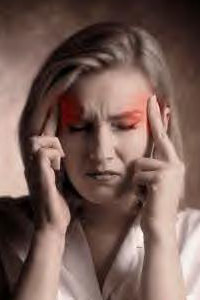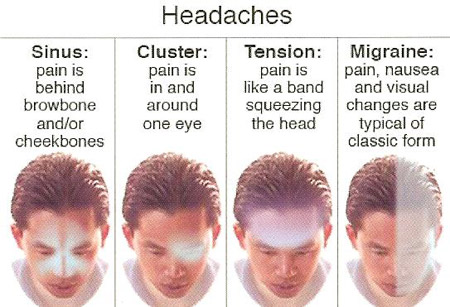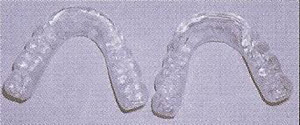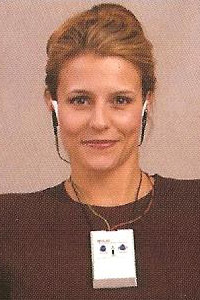Do You Suffer with Headaches?
 If you have a headache on a regular basis, it is a good idea to tell your dentist about them. But why your dentist? First of all, it is important to have this information as part of your medical records. Depending upon the type of headache, their frequency, and their severity, there are a variety of medical reasons and this can be important information for your dentist.
If you have a headache on a regular basis, it is a good idea to tell your dentist about them. But why your dentist? First of all, it is important to have this information as part of your medical records. Depending upon the type of headache, their frequency, and their severity, there are a variety of medical reasons and this can be important information for your dentist.
But most importantly, your headaches may be caused by an abnormal bite, and if so, a dentist specifically trained in Neuromuscular Dentistry can treat them more effectively than anyone else.
Talk to Your Dentist
For the above reasons, it is a good idea to talk to your dentist about your headaches. Headache is just one symptom that may be attributable to poor occlusion (or bad bite). Other symptoms such as pain or noise in the jaw joint, facial pain, sensitive teeth, difficulty chewing, and neck pain may also be related to your occlusion, and should be discussed with your dentist.
At Simply Beautiful Smiles, our dentist, Dr John Wells, has studied Neuromuscular Dentistry at the prestigious Las Vegas Institute (LVI). We have treated many patients – even those who have suffered severe headaches on an almost daily basis – with fantastic results giving not only great cosmetic results, but pain relieving functional results as well.
Types of Headache
Headaches are generally classified into several basic types: sinus, cluster, tension, and migraine. Your doctor or dentist can determine which type you have by discussing your symptoms with you. While headaches are typically treated by your doctor, improper occlusion (your bite) may play a significant role in certain types of headaches as well as other head and neck pain.
 One type of headache, tension headache is by far the most common – estimated by some to be the cause of as much as 90% of all headaches. Further, they are headaches that often originate in, or pain is referred to, the muscles of your forehead. If you only experience this type of headache occasionally, they are often controlled with over-the-counter pain medication. However, if they occur with some regularity or have persisted for a long period of time, it is wise to discuss them with your dentist.
One type of headache, tension headache is by far the most common – estimated by some to be the cause of as much as 90% of all headaches. Further, they are headaches that often originate in, or pain is referred to, the muscles of your forehead. If you only experience this type of headache occasionally, they are often controlled with over-the-counter pain medication. However, if they occur with some regularity or have persisted for a long period of time, it is wise to discuss them with your dentist.
Headaches and Your Bite
The muscle of the temple area and the forehead muscles play an important part in the posturing and closing of the jaw. If your occlusion (bite) is not right, it can lead to abnormal tension in these muscles – one of the several possible causes of tension type headaches. If the bite is not corrected, the muscles may remain tense for long periods of time. The contracted muscle does not get a chance to rest and soon suffers from poor circulation – thus a lack of needed oxygen and the accumulation of waste products of metabolism. The result can be pain (headache).
New technology now allows your dentist to objectively evaluate the state of these muscles and various other factors that may be affecting your bite. Based on this and other information obtained from physical examination, your dentist can rule in or rule out your bite as a possible cause of headache pain with a high degree of confidence.
Dental Treatment of Headaches
 If the indications are that your bite is a major factor, your dentist may recommend provisional or interim treatment. This involves fabrication of a custom made orthotic. An orthotic is a plastic appliance that is worn over your teeth to adjust your bite to a correct relationship.
If the indications are that your bite is a major factor, your dentist may recommend provisional or interim treatment. This involves fabrication of a custom made orthotic. An orthotic is a plastic appliance that is worn over your teeth to adjust your bite to a correct relationship.
At this point, nothing permanent is done to alter your teeth or your bite. You would wear this appliance for a period of time to make sure the new bite position is correct before any consideration would be given to permanently altering your bite.
 After having worn the provisional appliance for some time, both you and your dentist will know for sure if the new bite position has resolved the headache problem. If it has, you will have several options open to you for long-term treatment.
After having worn the provisional appliance for some time, both you and your dentist will know for sure if the new bite position has resolved the headache problem. If it has, you will have several options open to you for long-term treatment.
Some of these options may include dental treatment to permanently alter your bite to the new position, fabrication of a more permanent type of orthotic, or using a TENS device to relax the muscles at those times that headaches are most bothersome. More complex dental treatment to permanently alter your bite should only be performed by a dentist trained specifically in Neuromuscular Dentistry.



